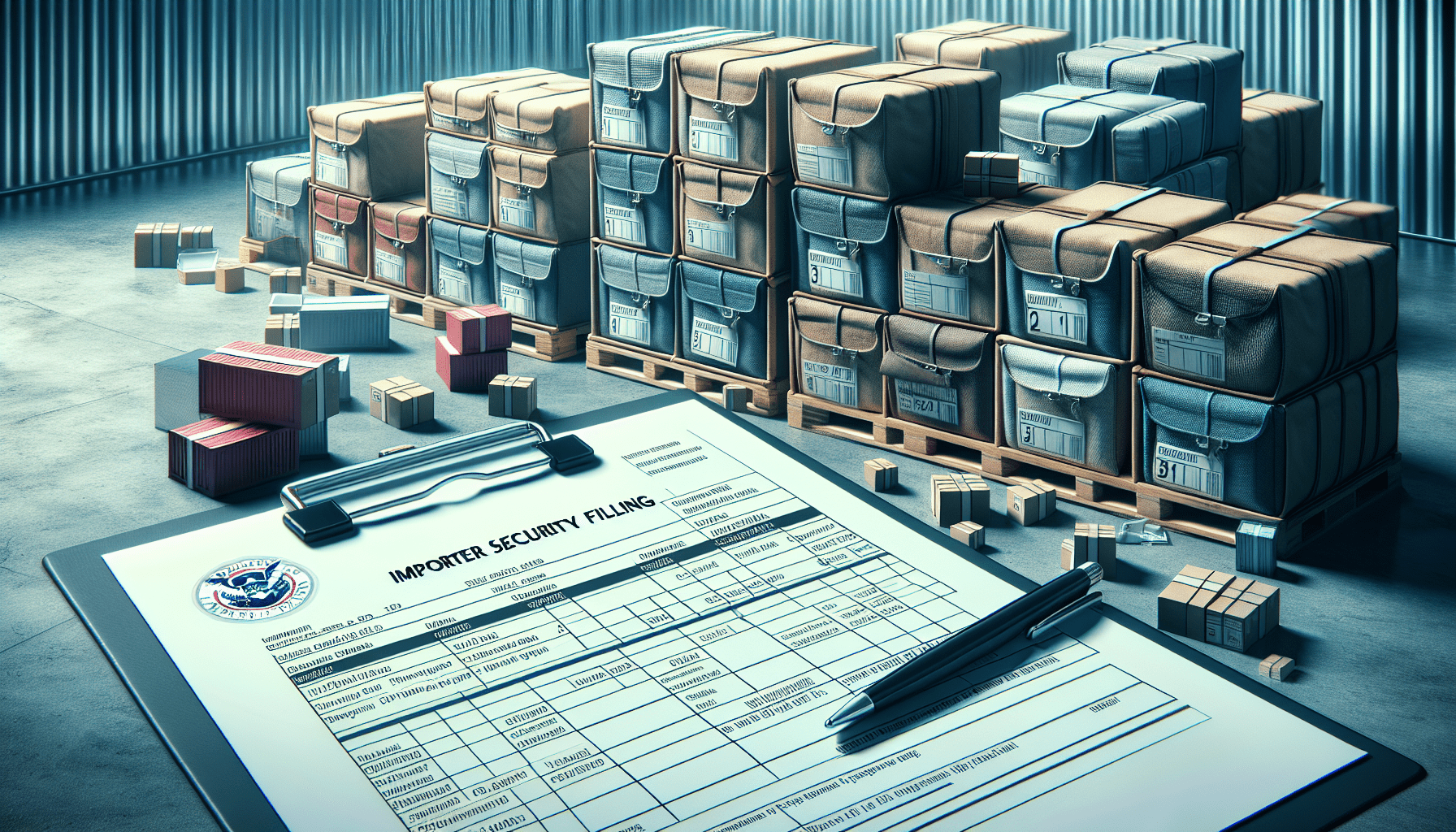How And When To File ISF For Storage Bags
If you are looking to import storage bags into the United States, it is essential to understand the process of filing an Importer Security Filing (ISF). Filing ISF for storage bags requires attention to detail and adherence to specific timelines. By familiarizing yourself with the requirements and deadlines for ISF submission, you can ensure a smooth and efficient import process for your storage bags. Understanding how and when to file ISF for storage bags is crucial for successful importing operations.
Are You Unsure About When and How to File ISF for Your Storage Bags?
If you’re feeling lost or confused about when and how to file an Importer Security Filing (ISF) for your storage bags, you’re not alone. Many importers find the process overwhelming and intimidating, but with the right guidance and information, it can be much more manageable. In this article, we’ll break down the steps you need to take to file ISF for your storage bags effectively and efficiently.

Understanding ISF Requirements for Storage Bags
Before diving into when and how to file ISF for your storage bags, it’s crucial to understand the requirements set forth by U.S. Customs and Border Protection (CBP). ISF, also known as “10+2,” is a mandatory security filing that must be submitted by the importer at least 24 hours before the cargo is loaded onto the vessel bound for the United States.
Knowing When to File ISF for Your Storage Bags
When it comes to filing ISF for your storage bags, timing is everything. Failure to submit the ISF in a timely manner can result in costly fines and delays in getting your cargo cleared by CBP. To avoid these penalties, it’s essential to know when to file your ISF. Here are some key points to keep in mind:
Filing Deadline: 24 Hours Before Loading
The deadline for filing the ISF for your storage bags is at least 24 hours before the cargo is loaded onto the vessel. This timeframe allows CBP to review the information provided and assess any potential security risks associated with the shipment. It’s crucial to submit the ISF within this window to avoid any penalties or delays.
Exceptions to the Deadline
While the standard deadline for filing ISF is 24 hours before loading, there are some exceptions to this rule that importers should be aware of. Certain types of cargo, such as non-bulk cargo transported by truck from Canada or Mexico, have different filing requirements. It’s essential to familiarize yourself with these exceptions to ensure compliance with CBP regulations.
How to File ISF for Your Storage Bags
Now that you have a better understanding of when to file ISF for your storage bags, let’s discuss how to navigate the filing process effectively. Filing ISF can be a complex and time-consuming task, but with the right approach and tools, you can streamline the process and ensure compliance with CBP regulations.

Gather Required Information
The first step in filing ISF for your storage bags is to gather all the necessary information that CBP requires. This includes details such as the importer of record’s number, the manufacturer or supplier’s name and address, the buyer’s name and address, the seller’s name and address, the container stuffing location, the consolidator’s name and address, and the stuffer’s name and address.
Select a Filing Method
Once you have all the required information on hand, the next step is to choose a filing method for your ISF submission. There are two main options for filing ISF: self-filing or using a customs broker. Self-filing can be cost-effective but requires a good understanding of CBP regulations and procedures. Using a customs broker can simplify the process and ensure accuracy but may come with additional fees.
Submitting the ISF
After selecting a filing method, it’s time to submit the ISF for your storage bags. If you choose to self-file, you can submit the ISF directly through CBP’s Automated Broker Interface (ABI) system. If you opt to use a customs broker, they will handle the submission on your behalf. Make sure to double-check all the information provided before submitting to avoid any errors that could result in penalties or delays.
Monitoring and Updating ISF
Once you’ve submitted the ISF for your storage bags, the process doesn’t end there. It’s essential to monitor the status of your ISF and update any changes or corrections as needed. CBP may request additional information or amendments to the ISF, so staying on top of these updates is crucial to avoid any issues with your cargo clearance.
Common Mistakes to Avoid When Filing ISF for Storage Bags
Filing ISF for your storage bags is a meticulous process that requires attention to detail and adherence to CBP regulations. To help you navigate the filing process successfully, here are some common mistakes to avoid:
Inaccurate or Incomplete Information
One of the most common mistakes importers make when filing ISF is providing inaccurate or incomplete information. This can lead to delays in getting your cargo cleared by CBP and may result in costly fines. Make sure to double-check all the information provided before submitting the ISF to ensure accuracy.
Missing the Filing Deadline
Missing the deadline for filing ISF for your storage bags is a serious mistake that can result in penalties from CBP. To avoid this, make sure to submit the ISF at least 24 hours before the cargo is loaded onto the vessel. Set up reminders or alerts to help you stay on track with the filing deadline.
Failure to Update ISF Changes
CBP may request changes or amendments to the ISF for your storage bags, so it’s crucial to stay on top of these updates. Failure to update the ISF with any required changes can result in compliance issues and delays in clearing your cargo. Make sure to monitor the status of your ISF regularly and respond promptly to any requests for updates.
Conclusion
Filing ISF for your storage bags can be a complex and daunting task, but with the right guidance and information, you can navigate the process successfully. By understanding the requirements set forth by CBP, knowing when to file your ISF, and following the proper filing procedures, you can ensure compliance and avoid penalties or delays. Remember to double-check all information provided, monitor the status of your ISF, and stay updated on any changes or amendments requested by CBP. By following these steps and avoiding common filing mistakes, you can streamline the ISF process for your storage bags and focus on getting your cargo safely and efficiently cleared by CBP.
